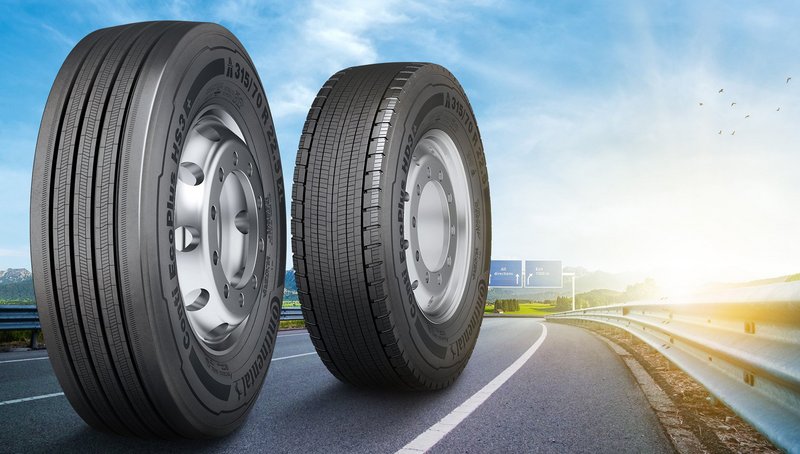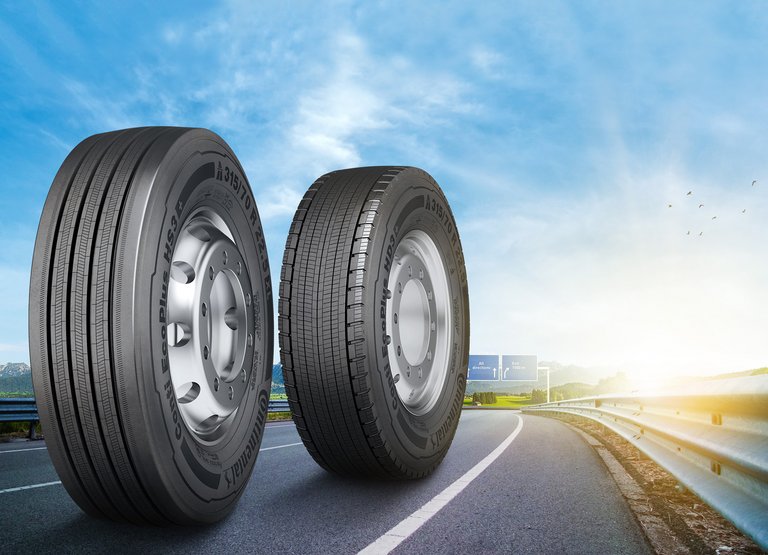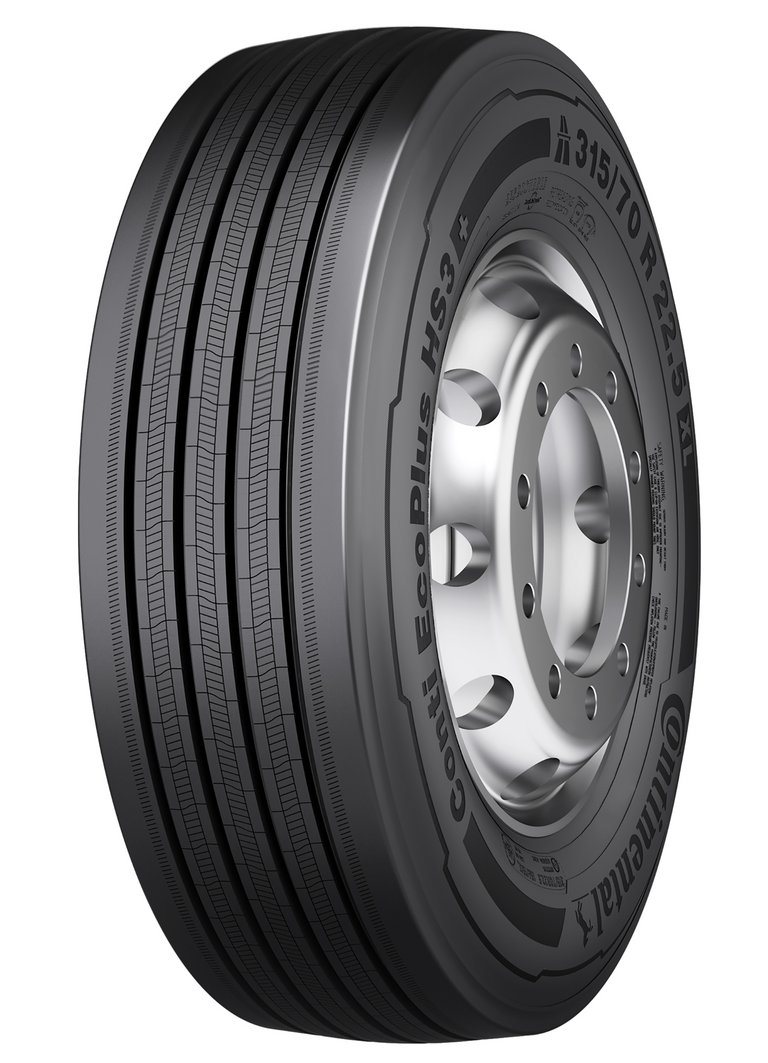Fuel-saving Champion for Long-distance Transport: Conti EcoPlus Scores Highly with Lower Rolling Resistance
- Update for the Conti EcoPlus tire family
- Reduced rolling resistance lowers fleet costs and protects the environment
- Higher mileage contributes to sustainable logistics in the long-distance transport sector
Hanover, Germany, June 29, 2021. Less rolling resistance, higher fuel efficiency: Continental is offering fleet operators an optimized commercial vehicle tire thanks to the latest updates to its Conti EcoPlus tire family. The long-distance transport tires score well with a further significant reduction in rolling resistance courtesy of an innovative rubber compound. The premium tires therefore help to lower fleet costs and CO2 emissions, without compromising on mileage and durability. To this end, the tire developers at Continental focused both on the new compound, which is optimized for long-distance transport, and an improved manufacturing process that reconciles rolling resistance and mileage. The Conti EcoPlus HS3+ and Conti EcoPlus HD3+ for the steer and drive axles will be available from July in size 315/70 22,5. Further dimensions will be added from October. The Conti EcoPlus HT3+ tire for the trailer axle will be introduced in the coming year.
Conti EcoPlus HS3+ and Conti EcoPlus HD3+: Robust performers in long-distance use
The Conti EcoPlus HS3+ steer axle tire for long-distance transport has reduced the rolling resistance of its predecessor once again by up to 7 percent. This has been achieved using an innovative tread and sidewall compound and an optimized base compound. This combination also ensures excellent fuel efficiency. “With the product line update, we have further improved the durability, robustness and mileage of this tire line,” explains Hinnerk Kaiser, head of tire development bus and truck tires at Continental.
The Conti EcoPlus HD3+ for the drive axle impresses with a reduction in rolling resistance of up to 12 percent over its predecessor. An innovative tread and sidewall compound also plays a role in this striking improvement. In addition, a special technology reduces deformation in the sidewall and bead area of the tire and further reduces rolling resistance.
Low rolling resistance reduces environmental impact
Commercial vehicles which use less fuel are good for both fleet budgets and the environment. The rolling resistance of a tire can affect fuel consumption by up to 30 percent, making it a crucial lever for tire developers. Added to which, rolling resistance is one of the parameters used by the VECTO simulation tool to calculate the fuel efficiency of a truck. VECTO and the EU Emissions Regulation remain important aspects for the haulage industry. The sector has, of course, been given the task of significantly reducing its CO2 emissions by 2030. As a way of increasing transparency in the tire selection process, Continental is offering a CO2 and fuel consumption calculator based on the VECTO simulation tool. This allows fleet operators to calculate the degree to which they can reduce emissions and fuel consumption by choosing the right Continental tires. The interplay of the tire’s mission profile, structure, pressure level and rolling resistance makes a decisive difference to how much fuel a fleet consumes and how much can be saved.

Annette Rojas
Communications Manager
Business Area Replacement EMEA
Continental Tires




